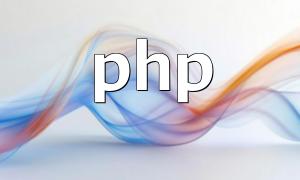In PHP website development and maintenance, improving website speed is a critical concern. Using code caching technology can significantly reduce PHP script compilation time, thus accelerating response and enhancing user experience.
Code caching refers to storing the compiled result of PHP code to avoid recompiling and parsing the script on every request, saving both resources and time. Below are several commonly used and effective PHP code caching techniques.
APC is a PHP extension developed by Facebook that caches the compiled PHP scripts in memory. Subsequent requests use the cached code directly without recompiling. Installing and configuring APC is simple by adding the following to your PHP config file:
extension=apc.so
apc.enabled=1
Since PHP 5.5, OPcache has been included as a built-in extension providing a more efficient code caching mechanism. Unlike APC, OPcache caches the bytecode, allowing faster PHP execution. Enable OPcache with:
zend_extension=opcache.so
opcache.enable=1
Beyond code caching, Memcached can cache database query results and other frequently accessed data. Memcached is a distributed memory object caching system that greatly reduces data access latency. Example code:
$memcached = new Memcached();
$memcached->addServer('localhost', 11211);
$key = 'user_123';
$result = $memcached->get($key);
if (!$result) {
$result = fetchFromDatabase(); // Fetch data from database
$memcached->set($key, $result, 3600); // Cache for 1 hour
}
echo $result;
File caching is a simple and easy-to-implement caching method that stores data in files to avoid repeated database queries or calculations. Example code:
$cacheDir = '/path/to/cache/';
$key = 'user_123';
$cacheFile = $cacheDir . $key . '.txt';
if (file_exists($cacheFile) && (time() - filemtime($cacheFile) < 3600)) {
$result = file_get_contents($cacheFile); // Read from cache file
} else {
$result = fetchFromDatabase(); // Fetch data from database
file_put_contents($cacheFile, $result); // Write to cache file
}
echo $result;
Combining the caching methods above can effectively improve PHP website speed and performance. Additionally, database optimization and frontend resource compression should be considered to create a multi-layered performance optimization strategy.
However, code caching is not a one-size-fits-all solution. When code updates frequently, caching may cause new code changes to not take effect immediately. Therefore, adequate testing and appropriate cache invalidation mechanisms are essential.
By properly applying APC, OPcache, Memcached, and file caching, you can significantly boost your PHP website’s access speed. Coupled with other optimization techniques, these methods help build a fast, stable PHP environment that enhances user experience.









